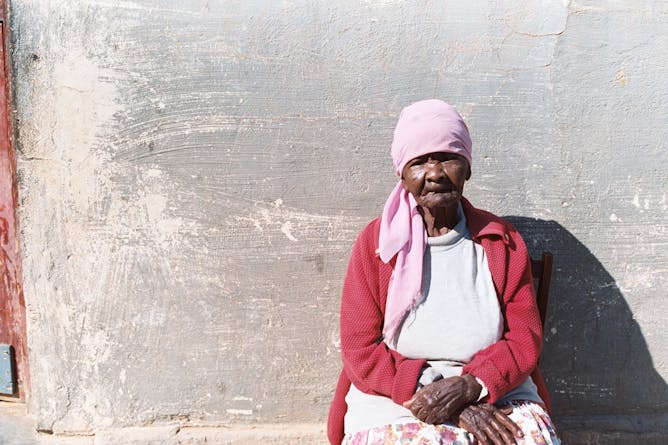|
“Helicopter research” is a term that describes what it evokes – researchers from wealthier countries airlifting samples or collecting data from poorer countries without meaningful contact or collaboration with the communities they took them from.
The Khoe-San people in South Africa are no stranger to exploitative research. From rooibos tea to hoodia cactus-derived dietary supplements, the community has historically had to fight for fair compensation and recognition for their contributions to science and medicine. But even for well-meaning researchers, defining what is a fair and equitable exchange can be murky and difficult to execute.
Geneticists Dana Al-Hindi and Brenna Henn of the University of California, Davis are grappling with this question as they conduct their own research. They have partnered with personal DNA testing company 23andMe to provide individual genetic ancestry results to the Khoe-San communities they’re working with. But it’s clear that addressing concerns about exploitative and coercive research won’t be easy.
“Other companies have already promised long-term benefits by sharing equity and profit with participating communities,” they write. “Are individual ancestry results and community grants a sufficient and fair exchange against the profits the company will gain from this collaboration?”
Also today:
|

Dana Al-Hindi, University of California, Davis; Brenna Henn, University of California, Davis
The South African Khoe-San communities are no strangers to exploitative research. One research team is trying to provide genetic ancestry results to community members. But they still face many challenges.
|
Environment + Energy
|
-
Ganesh Marin, University of Arizona; John Koprowski, University of Wyoming
Keeping landscapes connected can help protect wild animals and plants. In the US Southwest, border wall construction is closing off corridors that jaguars and other at-risk species use.
|
|
Economy + Business
|
-
Tuugi Chuluun, Loyola University Maryland
Twitter adopted a so-called poison pill to make it much harder for Musk to take over the company.
-
Alei Fan, Purdue University
Delivery services and cafes commonly prompt customers to leave a specific tip – for example, 15%, 20%, 25% – at the point of sale rather than after completing the service.
|
|
Education
|
-
Rashad Shabazz, Arizona State University
Music education in Minneapolis public schools stood out as one of the best and gave rise to the city’s music scene that helped propel Prince to fame, a scholar writes.
|
|
Science + Technology
|
-
Elizabeth Tricomi, Rutgers University - Newark ; Wesley Ameden, Rutgers University - Newark
People tend to dislike uncertainty and risk – two things that are hard to avoid completely during a pandemic. That’s part of why it can feel especially draining to make even small decisions these days.
|
|
Politics + Society
|
-
Stanislav Budnitsky, Indiana University
Political phone pranksters played a big part in the passage of draconian laws that strangle free expression in Russia.
|
|